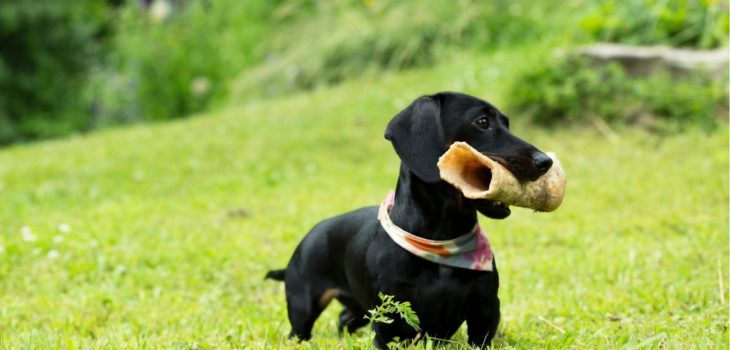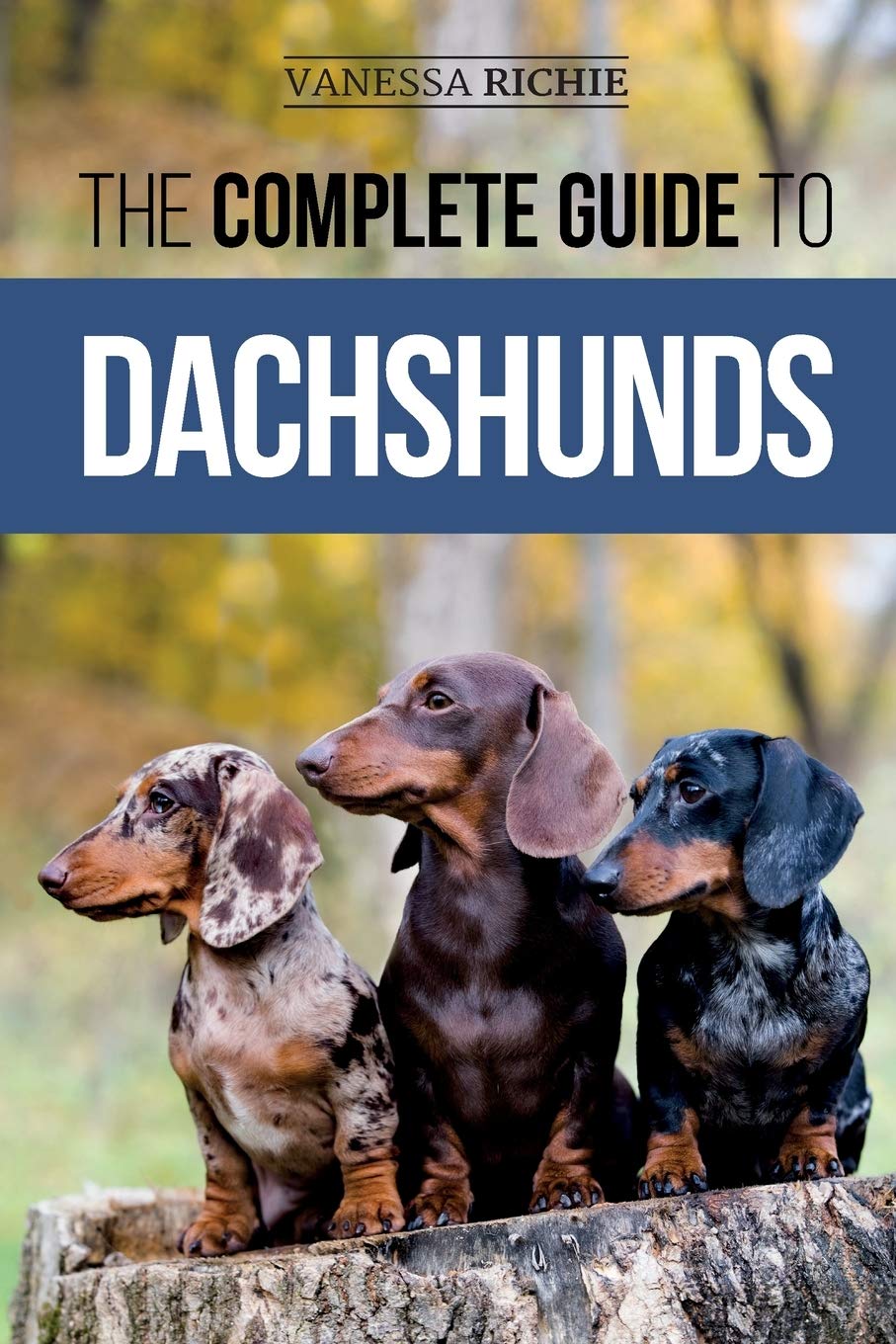Picking a new or first dog can be a complicated process that involves lots of research. So, here’s our miniature dachshund dogs 101 – everything important to know about mini Doxies. If you want to delve deeper into any of the topics we’ll touch on below, we’ve explored all of them in more detail right here on Sweet Dachshund.
Miniature Dachshund Dogs 101
Without further ado, here are the X things every future miniature dachshund owner should know and research before they bring their mini Doxie home:
1. Size
Miniature dachshunds are really small. A miniature dachshund will be about 12 to 14 inches tall (31 to 35 cm) and 9 to 11 pounds heavy (4 to 5 kg).

2. Health Predispositions – Miniature Dachshund Dogs 101
Mini Doxies don’t have any extra health issues compared to standard dachshunds but that doesn’t make them “healthy”
These tiny dogs have the same health predispositions as standard dachshunds, including Intervertebral Disc Disease (IVDD).
3. Physical Trauma
The risk of physical trauma is greater with such a small breed. One extra risk mini Doxies have is that of physical trauma. These dogs are just smaller and easier to hurt by accident so you should be careful around them.
4. Bred For Hunting – Miniature Dachshund Dogs 101
Mini Doxies weren’t bred as a toy breed. Instead, they were bred to hunt small rabbits and be able to jump into their tiny burrows. In contrast, standard dachshunds were bred to hunt the much larger badgers and foxes.
5. Smart But Hard To Train
Mini Doxies are very smart but that doesn’t make them easy to train. There is a myth that dachshunds aren’t smart – that’s wrong. As a hound, however, they are very willful and strong-minded which makes obedience training both harder and more important.
The Complete Guide to Dachshunds
6. Potty Training – Headache
Be especially well-prepared for potty training as that’s the bane of most first-time Dachs owners. Potty training is worth a separate mention in a miniature dachshund dogs 101 because of how many first-time owners it catches off-guard – we’ve examined it in detail here.
7. Choose Who To Love – Miniature Dachshund Dogs 101
Miniature dachshunds are very loving and affectionate animals but they do tend to pick one family member to love even more than the rest. These dogs should get along with everyone in your family. The reason they fixate a bit too much on one person is in their instincts – hounds were bred and trained to interact and hunt with the hunter first and foremost.
8. Good With Children
Mini dachshunds are good with children as long as you teach the kids not to hurt the dog. The risk of getting a child and a mini dachs under one roof isn’t for the child’s well-being as much as it is for the dachs’ health. Teach your kid to be gentle with your Doxie!
9. Very Social
Doxies can be very social when you socialize them well early on and not that social if you skip that step. Like most dogs, a socialized dachshund will love meeting new people but a poorly-socialized Doxie can be a problem.
10. Barking Is Not A Problem – Miniature Dachshund Dogs 101
There is such a thing as no-bark training but it’s generally better to just socialize and train your dachs well ahead of time so it doesn’t have the urge to bark at strangers anyway.

11. Get Along With Other Dogs And Cats
Dachshunds can get along with most other dogs and even cats if they are introduced to them adequately enough. Doxies generally don’t like animals bigger than them but can get along even with them if they are socialized and introduced properly.
12. Adapt Your Home
You may want to adapt your home a bit for your dachshund. Stuff such as ramps along the stairs or up certain furniture pieces can really keep your dachshund’s back healthy.
13. Use A Harness – Miniature Dachshund Dogs 101
Use a harness instead of a collar to keep your mini dachs’ back healthy at all costs. Never ever leash your dachshund’s collar – always use a harness for walking outside as it won’t damage your dog’s neck and back.
14. SeparationAnxiety
The dachshund’s social nature means that separation anxiety is something to keep in mind. Another big issue people ignore – that also leads to barking – is separation anxiety. Dachshunds just don’t do well alone.
15. Long-term Commitment
Dachshunds live very long so this is indeed a long-term commitment. The average lifespan of Doxies is 12 to 16 years – potentially even more with good care!
Conclusion – Miniature Dachshund Dogs 101
Is this all there is to know about mini Doxies? Of course not! But it should serve as good miniature dachshund dogs 101 and give you plenty of stuff to research in more detail before you get your Doxie. The guys at Seminararbeit schreiben lassen designed the text for this article.
FAQ’s
[rank_math_rich_snippet id=”s-62ddfd7a-e21d-44ed-9863-56a2469a63bb”]





